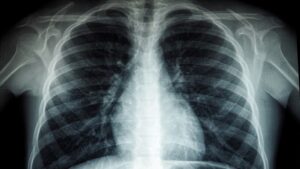[ad_1]
WHAT IS VITAMIN C?
Vitamin C, or ascorbic acid, is a water-soluble vitamin. Vitamin C, which can take part in many enzymatic reactions, is heat stable. Various studies show that vitamin C is necessary for the growth and repair of tissues in every part of the body.
Vitamin C helps heal wounds, repair and protect teeth, skin and cartilage. Vitamin C also acts as an antioxidant, helping to prevent or delay certain cancers and heart diseases in the body, fighting free radicals that can help support healthy aging.
Vitamin C from food also helps reduce the risk of cartilage loss in people with osteoarthritis.
WHAT ARE THE SYMPTOMS OF VITAMIN C DEFICIENCY?
Vitamin C deficiency is not a very common problem nowadays. If a person does not take very little (10 mg/day) or no vitamin C for an average of one month, deficiency symptoms begin to appear. Deficiency at first;
– Weakness,
– Tiredness,
– Causes problems such as inflammation of the gums.
As vitamin C deficiency progresses, collagen synthesis is impaired. Therefore;
small bruises on the skin, joint pain, delayed wound healing,
deterioration of the hair structure occurs.
Vitamin C deficiency also causes decreased absorption of iron from plant sources. In this case iron deficiency anemia may result in.
a disease caused by vitamin C deficiency skorbütte; swelling, bleeding, redness of the gums can be seen. Unhealthy gums can lead to tooth loss.
In the later stages of scurvy, patients may experience depression. This disease, which is rare today, can result in death if left untreated.
In the treatment of scurvy, it is beneficial to consume foods rich in vitamin C or to use vitamin C supplements. Supplements such as ester vitamin C help to correct the vitamin deficiency.
HOW TO TREAT VITAMIN C DEFICIENCY?
The daily consumption amounts required to avoid vitamin C deficiency may vary depending on the vitamin and factors such as the gender, age, and pregnancy of the person.
The best way to get essential vitamins is through a balanced diet that includes a wide variety of foods. In addition, taking vitamin C supplements when necessary is important in eliminating the deficiency.
HOW TO MEET DAILY VITAMIN C NEEDS?
Vitamin C is most commonly found in citrus products, various fruits and vegetables. In addition, it is possible to take vitamin C in the form of oral supplements in the form of capsules and chewable tablets.
However, medical professionals believe that supplemental vitamin C for its antioxidant properties does not provide the same benefits as naturally occurring antioxidants in foods.
In order to ensure that water-soluble vitamins are present at healthy levels in the body, such vitamins should be included in the diet continuously. Eating the fruits and vegetables rich in vitamin C as raw after thoroughly cleaning them and cooking the rest with as little water as possible will prevent some of the water-soluble vitamins from being lost in the cooking water.
normal for individuals nutrition The recommended daily intake of vitamin C is given below. However, it is recommended to consult a doctor before determining a diet according to these amounts.
Children 0 to 6 months: 40 milligrams per day
Children 7 to 12 months: 50 milligrams per day
Children 1 to 3 years old: 15 milligrams per day
Children ages 4 to 8: 25 milligrams per day
Children ages 9 to 13: 45 milligrams per day
Women ages 14 to 18: 65 milligrams per day
Men 14 to 18 years: 75 milligrams per day
Women 19 years and older: 75 milligrams per day
Men 19 years and older: 90 milligrams per day
Pregnant women: 80/85 milligrams per day
Breastfeeding women: 115/120 milligrams per day.
WHAT FOODS ARE VITAMIN C FOUND?
Studies have shown that the foods richest in vitamin C are citrus products, green peppers, strawberries, tomatoes, broccoli, potatoes and sweet potatoes.
Rich sources of vitamin C are also known to include dark leafy greens, cantaloupe, papaya, mango, watermelon, Brussels sprouts, cauliflower, cabbage, capsicum, raspberries, blueberries, winter squash and pineapple.
Follow NTV on social media
[ad_2]






